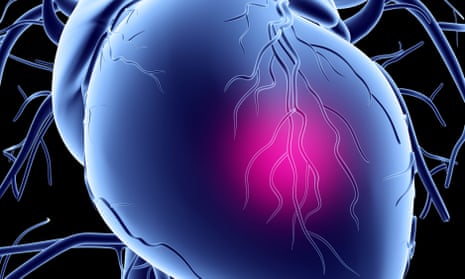Women are 50% more likely than men to be given a wrong diagnosis after a heart attack, according to a study.
Three in 10 patients’ initial diagnosis differed from their final diagnosis. Researcher Dr Chris Gale said an initial misdiagnosis could have “potentially important clinical repercussions, including an increased risk of death”.
The study by Leeds University researchers looked at records of nearly 600,000 heart attack patients admitted to 243 NHS hospitals in England and Wales between April 2004 and March 2013. It found that 198,534 patients were initially misdiagnosed.
Heart attacks can be broken down into two main types: Stemi and Nstemi. A Stemi attack occurs when there is a total blockage of the coronary artery that supplies the heart muscle with oxygenated blood. The more common Nstemi type of heart attack involves a partial blockage of one or more arteries. Both result in serious damage to the heart muscle.
Women who had a final diagnosis of Stemi had a 59% greater chance of a initial misdiagnosis compared with men, according to the study, which appears in the European Heart Journal Acute Cardiovascular Care. Women who had a final diagnosis of Nstemi had a 41% greater chance of a misdiagnosis when compared with men.
Dr Mike Knapton, associate medical director at the British Heart Foundation, which part-funded the study, said the differences in diagnosis were “alarmingly high” but better tests were being developed for female heart attack diagnoses.
He noted that when different limits were applied to the troponin test, a routine test for a heart attack, more women received a correct diagnosis of heart attack. “However, this new study highlights the current scale of the issue and confirms more research is urgently needed into tests that will enable earlier and more accurate diagnosis of a heart attack, particularly in women,” he said.
Up to 28,000 women a year in the UK die from heart attacks, according to BHF estimates. There are around 275,000 female heart attack survivors in the UK, many of whom will be living with heart failure as a result of this illness.
The longer a heart attack is left undiagnosed and untreated, the more the heart muscle can be damaged irreversibly.
